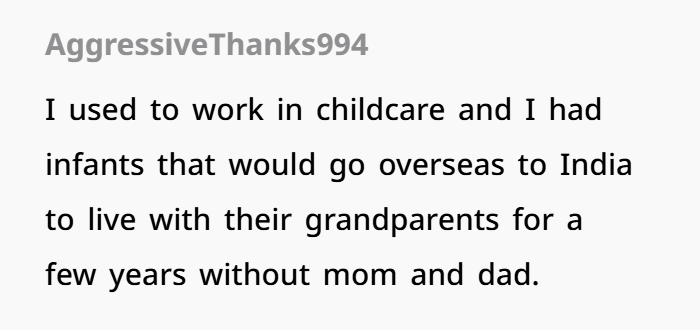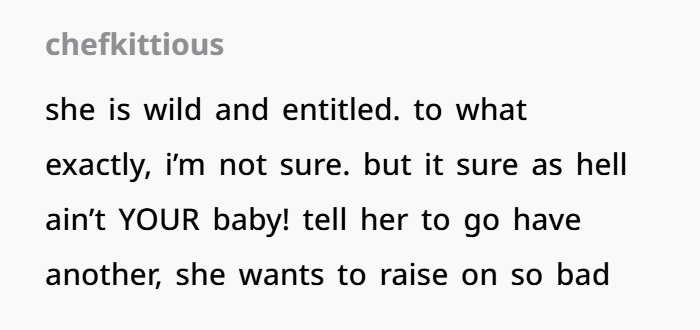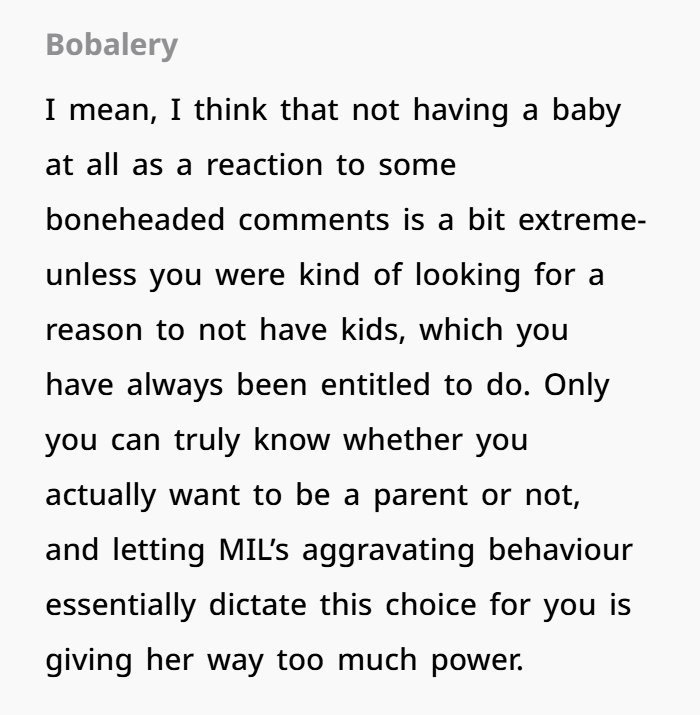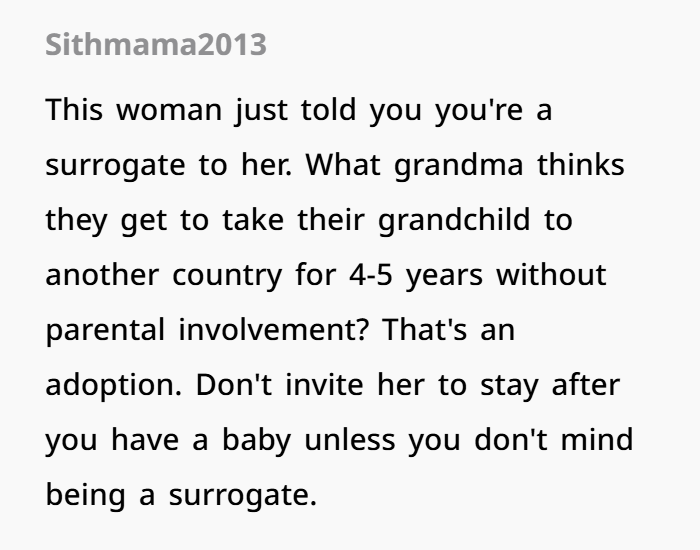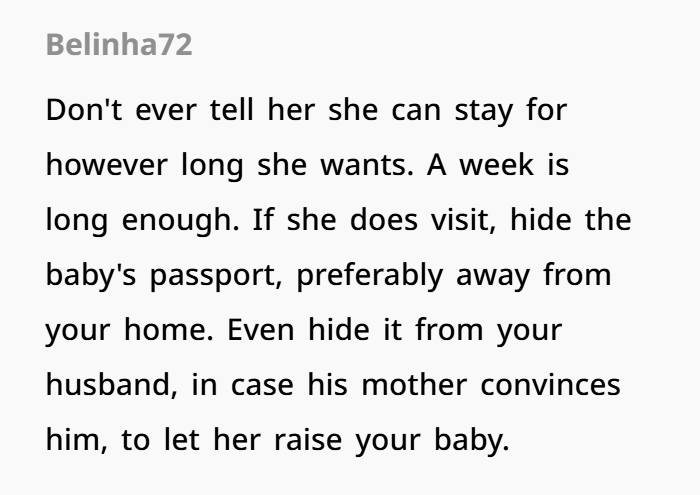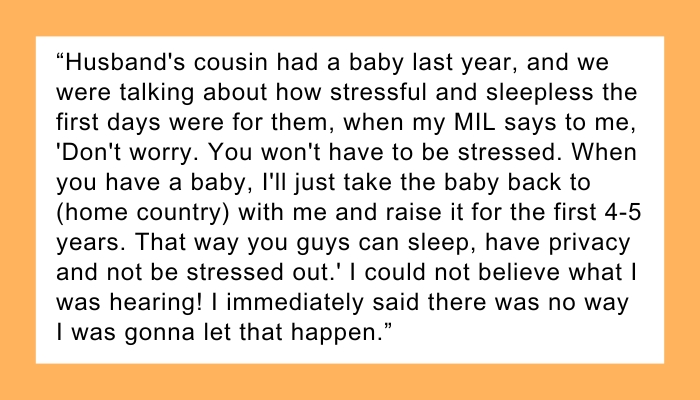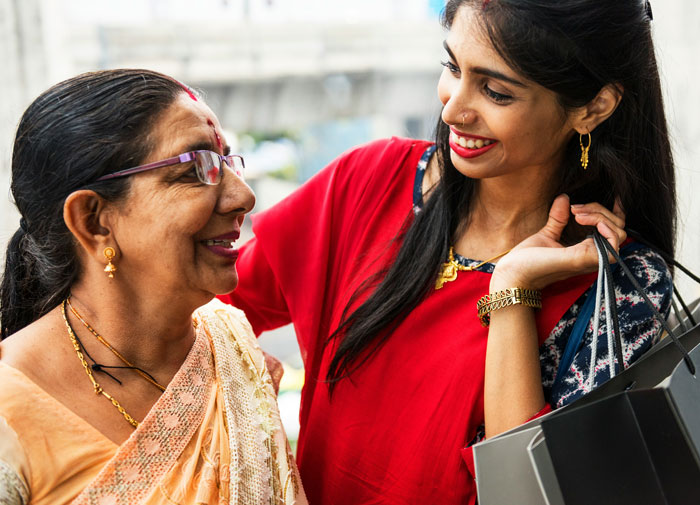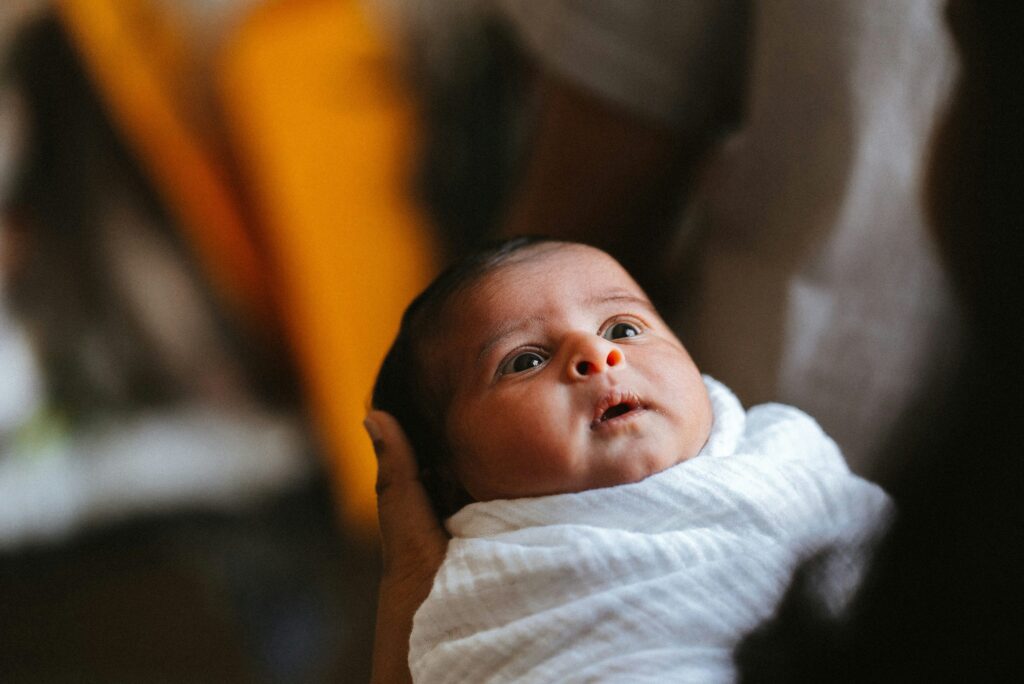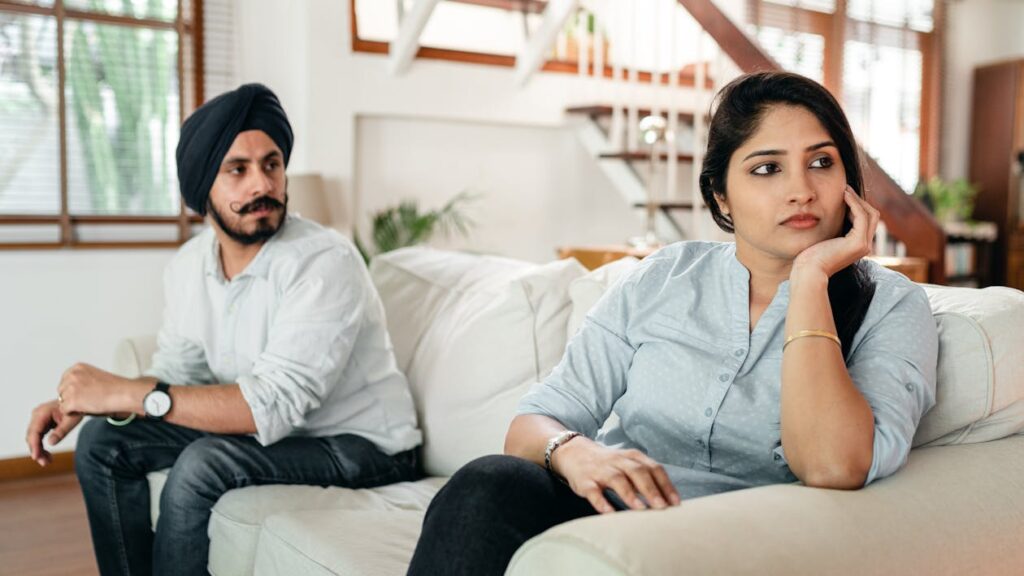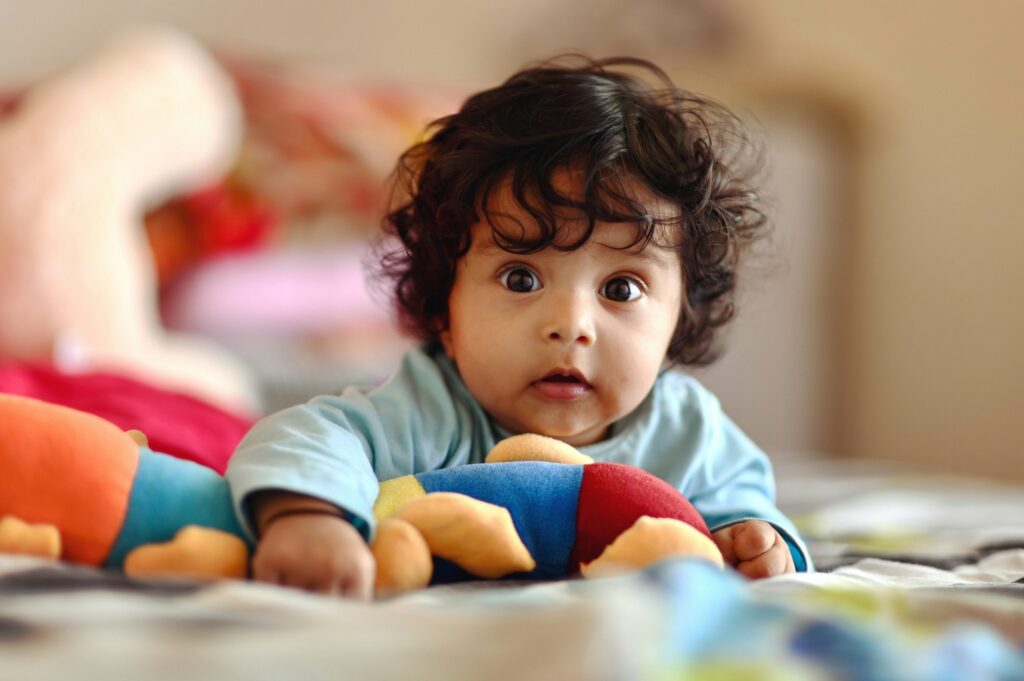Woman Freaks Out After Finding Out MIL’s Plans For Her Future Child: “That’s An Adoption”
You’ve heard the saying, “It takes a village to raise a child.” But one woman on Reddit, username Left_Time7700, shared a shocking story that made her question if she ever wanted that “village” involved at all—especially when it came to her mother-in-law.
The woman and her husband are currently a childfree couple, focused on their careers, financial freedom, and building a peaceful home. But things got uncomfortable when her mother-in-law pushed them to have a baby—and offered a strange form of support. She said she would help them by taking the baby abroad for the first two years to raise it herself, far away from the parents.
Instead of easing the couple’s parenting stress, the offer made everything worse. Both the woman and her husband were shocked and strongly disagreed with the idea. The thought of being separated from their child during the crucial early years sounded more like a nightmare than help.
Now, the wife is seriously reconsidering the idea of having children at all. She feels that if that’s the kind of help they’ll get, it might be better to raise a child alone with her husband—or not at all.
This story highlights how toxic family dynamics, parenting boundaries, and mental health can play a big role in family planning decisions.
Read for more info Reddit
The mother-daughter-in-law relationship can be a beautiful bond where both women feel valued and respected
But this woman feels like her husband’s mom won’t stop overstepping her boundaries

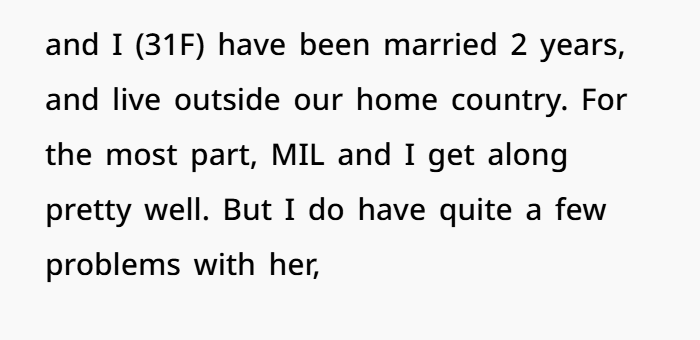
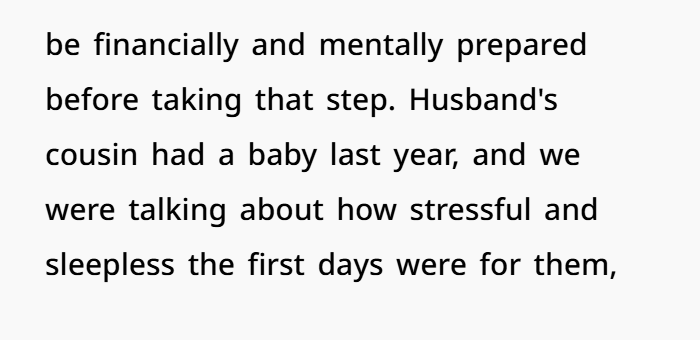
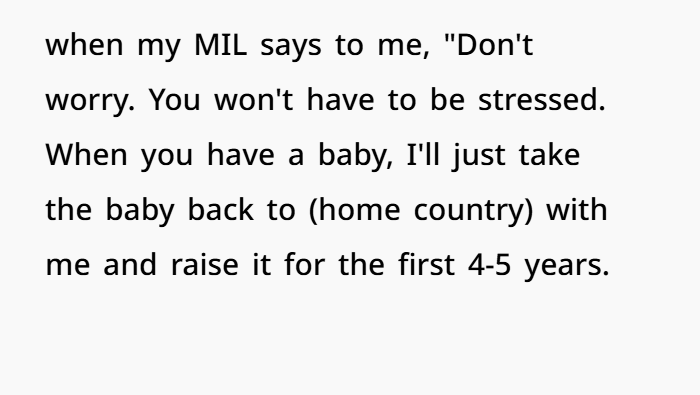
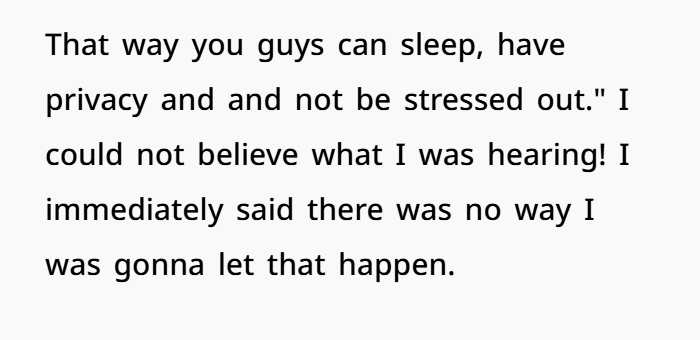
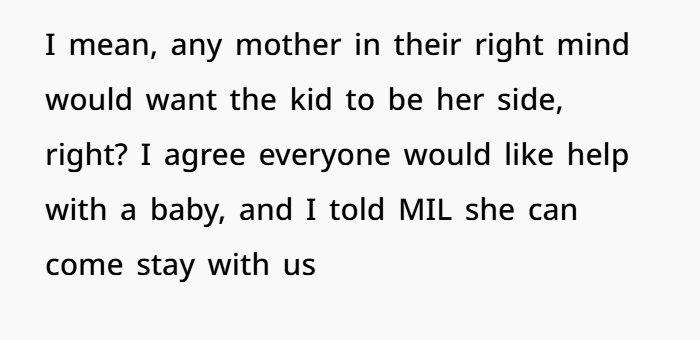
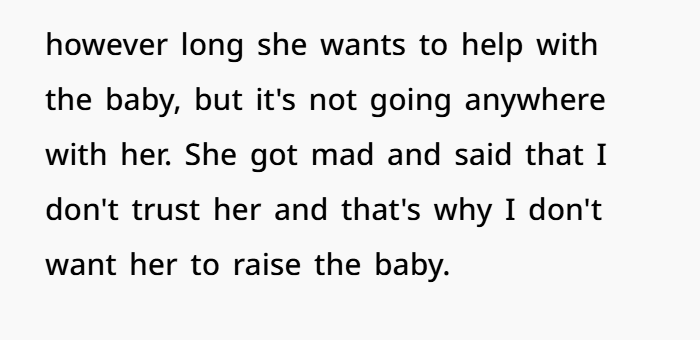
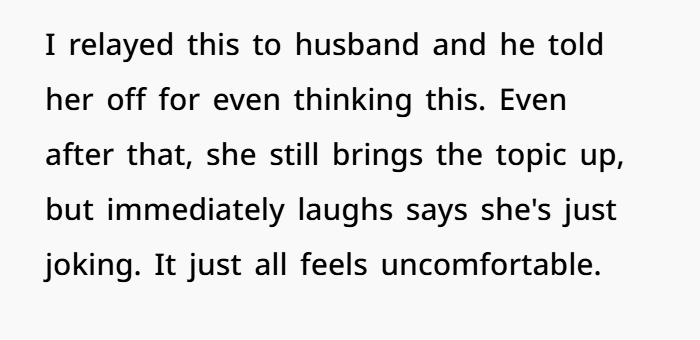
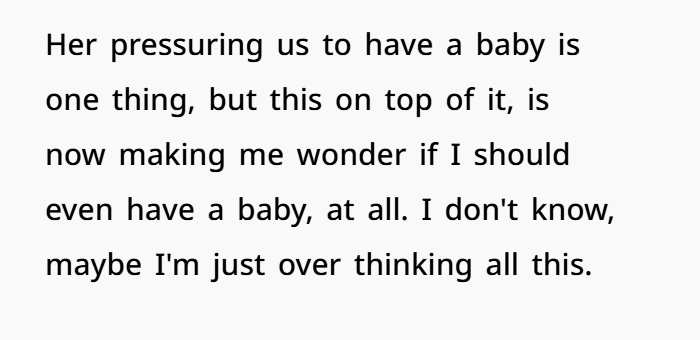
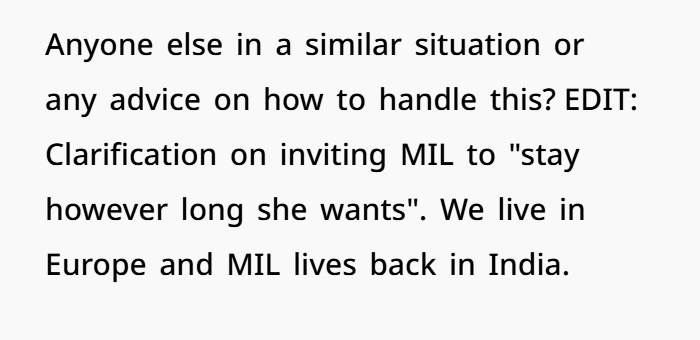
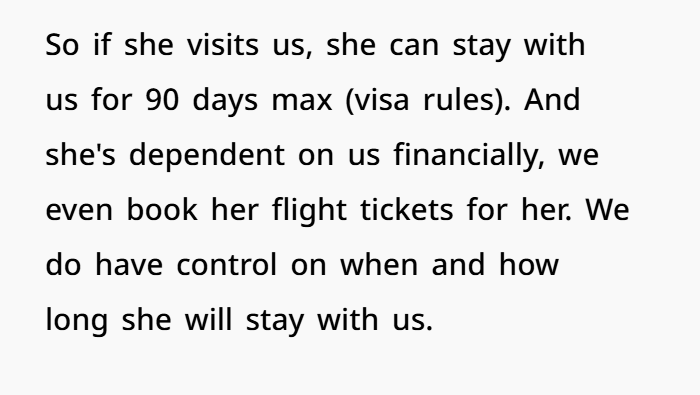
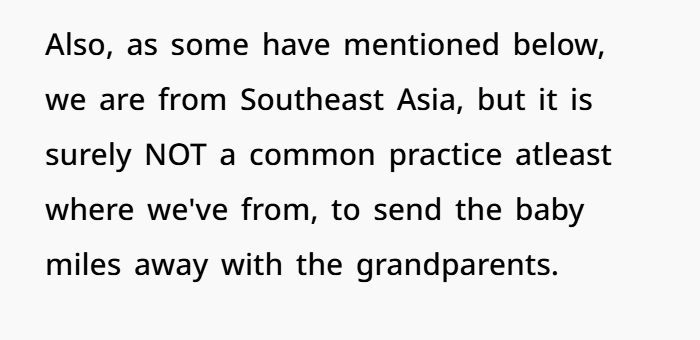
In the West, relatively few children live with their grandparents without their mom and dad
According to the United States Grandparents and Their Coresident Grandchildren report, about 7.1 million children under 18 were living with their grandparents in 2022. This growing number shows the important role grandparents play in childcare, family support, and even legal guardianship.
More than half of these children—around 4.2 million—lived in homes maintained by grandparents. The rest lived in parent-maintained households (2.7 million), or in other setups, like with an aunt or uncle (about 221,000 children).
Even in grandparent-led homes, most children still had at least one parent present. The report found:
- 38.6% lived with both parents
- 36.6% lived with just the mother
- 6.2% lived with just the father
- Only 18.6% had no parent living in the home
This pattern remained steady whether the child lived with both grandparents, just the grandmother, or just the grandfather.
These numbers are important for anyone involved in child custody cases, grandparent visitation rights, or family law policies. They also highlight how multi-generational households are becoming more common due to economic stress, single-parent challenges, or housing costs—topics that are crucial for parents, grandparents, and legal professionals alike.
Based on the information we have, it’s hard to tell if the mother-in-law is purposely trying to undermine her daughter-in-law’s parenting. Some people online suggested that the conflict may simply be due to cultural differences in childcare.
In many cultures, it’s common for Indian grandparents to travel abroad to help raise their grandchildren. So why not consider the opposite—having the child spend time overseas with the grandparents? It may seem unusual in Western parenting, but it’s a normal part of family support systems in other parts of the world.
Danijela Jokic Vaislay, an author from Bosnia and Herzegovina who has lived in India for over a decade, shared her thoughts on this issue. She said many of her European friends struggle with managing small children—especially when both parents are working—but still feel uncomfortable leaving their kids with grandparents or extended family. Even if they try, the children often cry for their mother the entire time.
In contrast, in Indian joint families, children grow up with grandparents, uncles, aunts, and cousins. They become more independent from their parents and are happy to play, travel, or even live with extended family without getting upset.
“It’s hard to imagine this in Europe,” Vaislay said. “There, kids get anxious even when their mother goes to the bathroom.”
This story shows the power of cross-cultural parenting and how different traditions shape our views on family roles and child-rearing. Maybe the Reddit user and her mother-in-law can still find a balanced parenting plan that respects both cultural values and personal comfort.
Some of the people who read the story said the MIL was out of line
